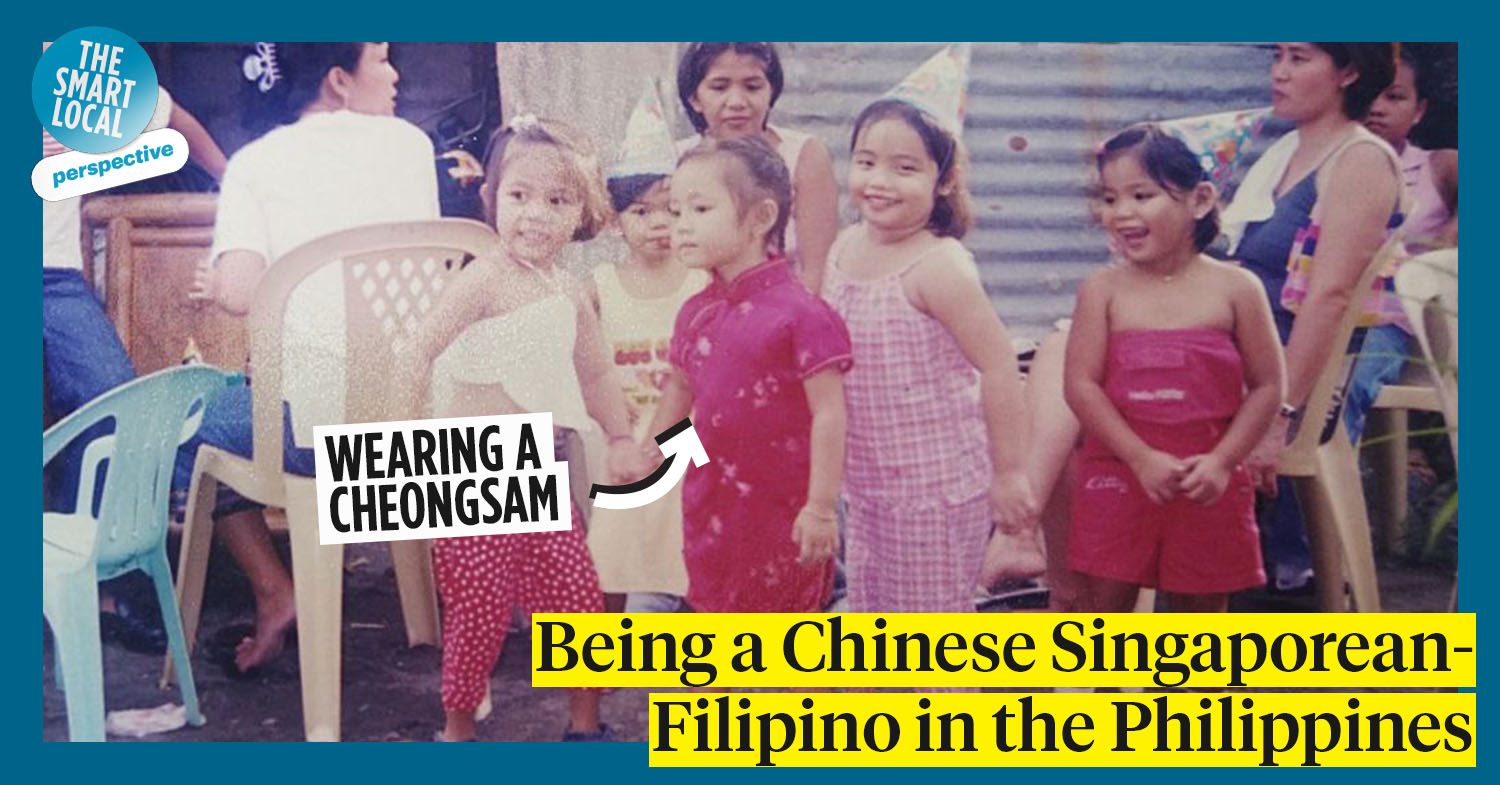Being a Chinese Singaporean-Filipino in the Philippines
Whenever I’m out with my extended Filipino family, I stand out. Strangers give me odd looks not only because I tower over everyone else, but also because I don’t look like the rest of my family.
Now, I’m usually fine with who I am – a Chinese Singaporean-Filipino kid living in the Philippines. Though I don’t think about my ethnicity on a daily basis, when I remember instances when people have questioned my ethnicity, even subtly, I begin overthinking too.
Why I feel estranged from my Singaporean identity
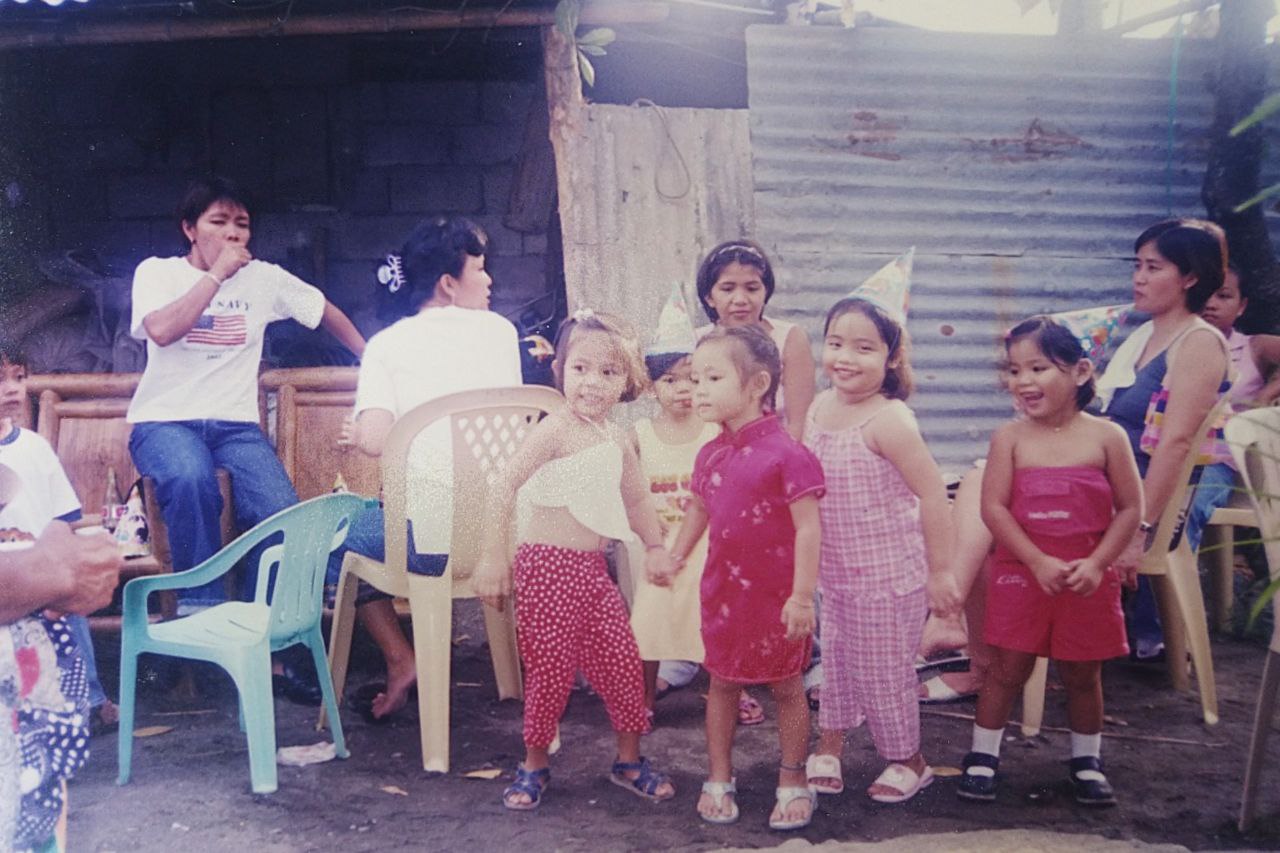
Having me wear a cheongsam was my mom’s way of bringing me closer to my Singaporean identity
Image credit: Kim Shelly Tan
One reason I feel estranged from my Singaporean identity is that I can’t understand my dad’s language. Once, when a jewelry vendor in Binondo wondered out loud why I looked chinita and my mom explained that I’m half Chinese Singaporean, the vendor asked me for my name in Cantonese.
Since I couldn’t understand her question, my Filipino mom who understood a little Cantonese had to translate for me. I was so embarrassed that I couldn’t even understand a simple question in my dad’s language.
Another reason why I don’t disclose my ethnicity often in conversations with strangers is that I feel like an impostor. I don’t know much about the culture save for my mom’s stories about her past experiences as a domestic helper in Singapore, my brief, long-distance relationship with my late Chinese Singaporean dad, and a week of being in Singapore when I was 11.
Thanks to my interest in K-pop, I also know more about Korean language and culture than Cantonese and Chinese Singaporean culture, which I feel would be a let-down for my dad.
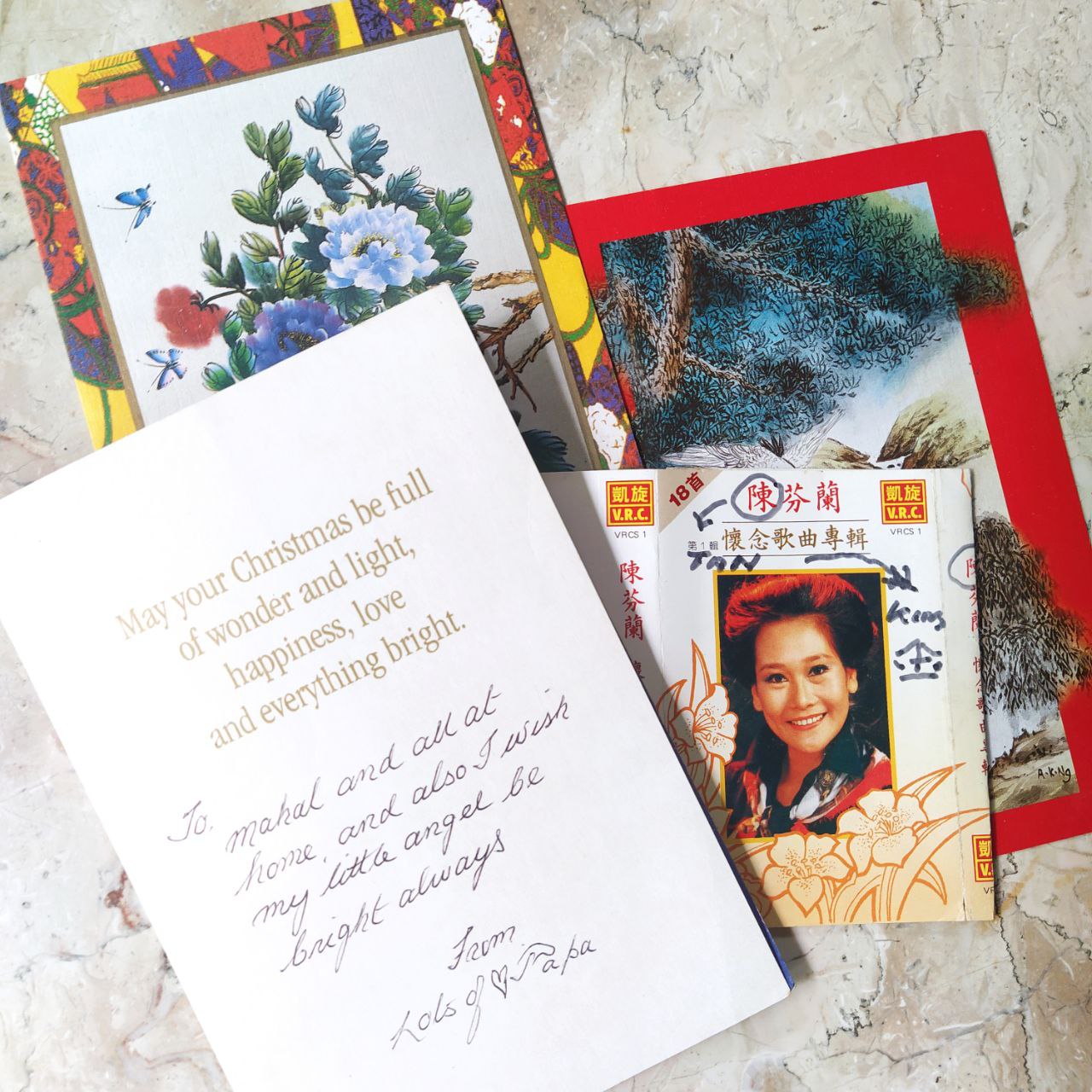
My dad tried to teach me how to write my name in Chinese script through the cover of a cassette tape he sent to the Philippines
Image credit: Kim Shelly Tan
I still have things I remember about Singapore, though. These include the Singaporean comedy character Liang Po Po and the instant Tom Yum noodles I often had as a child. But I’m afraid that when I say this, “real Singaporeans” who live in Singapore will view me the same way some Filipinos view Filipino-Americans – as too detached from their culture to claim their identity.
Because I feel detached from my Singaporean side, when asked about my identity by a Singaporean or a Chinese person, I don’t feel like telling them I’m a halfie because then I’ll have to deal with follow-up questions.
Being raised a Filipino
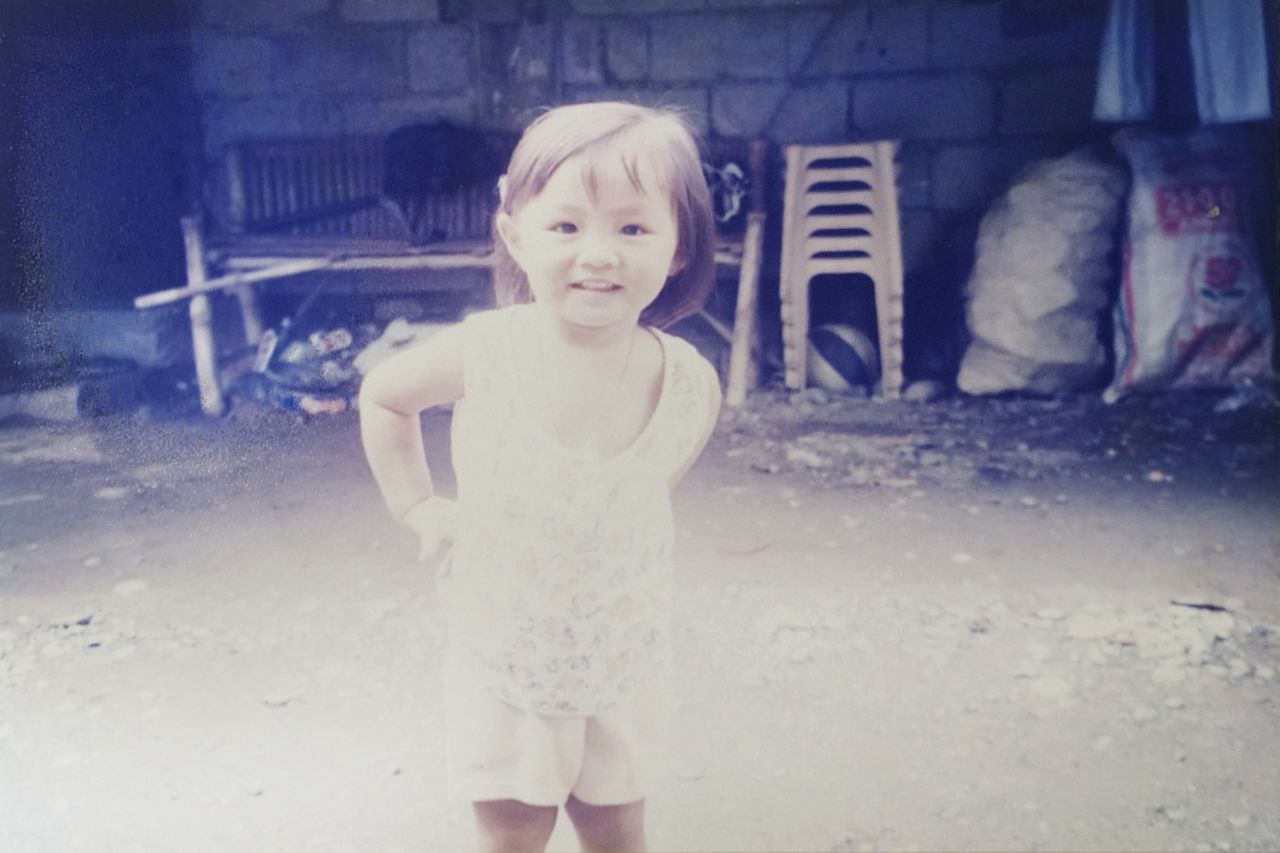 Having strong East Asian features as a child often gained me attention from people other than my family
Having strong East Asian features as a child often gained me attention from people other than my family
Image credit: Kim Shelly Tan
In contrast to my uncertainty with my Singaporean identity, I’m very much confident about being Filipino. In fact, I don’t really understand why my identity as a Filipino is often questioned simply because I’m not morena.
I was born and raised in the Philippines and was only really out of the country for a week 10 years ago. And while I only know 5 words in Mandarin, I speak Filipino and Iloko – another language in the Philippines – as well as any multilingual speaker.
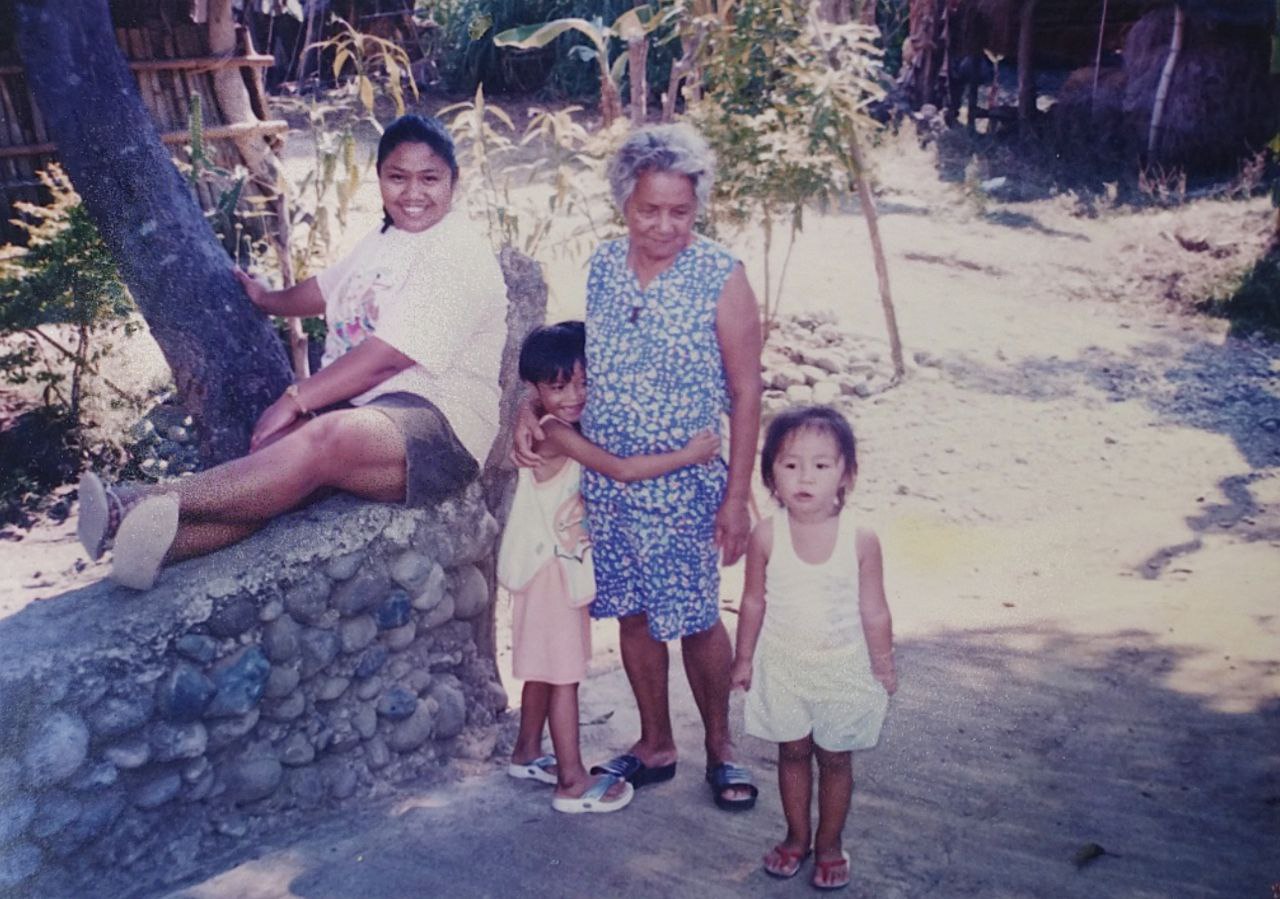 A photo of me and my relatives
A photo of me and my relatives
Image credit: Kim Shelly Tan
I grew up with the things other late 90’s Filipino children grew up with, such as the Filipino dub of the Taiwanese drama Meteor Garden and fanta-seryes (Filipino fantasy TV series). I even roleplayed Encantadia with my cousins – we always fought about who gets to play Amihan – which I think should be solid proof that I was brought up as Filipino as I could be. I certainly didn’t win Spaghetti and Pamela Wan dance battles during Christmas parties for nothing.
Spending 22 years of my life in the Philippines, I genuinely believe I’m Filipino. However, strangers seem to think that the way I look cancels out my very Filipino upbringing.
Being treated like a foreigner in the Philippines
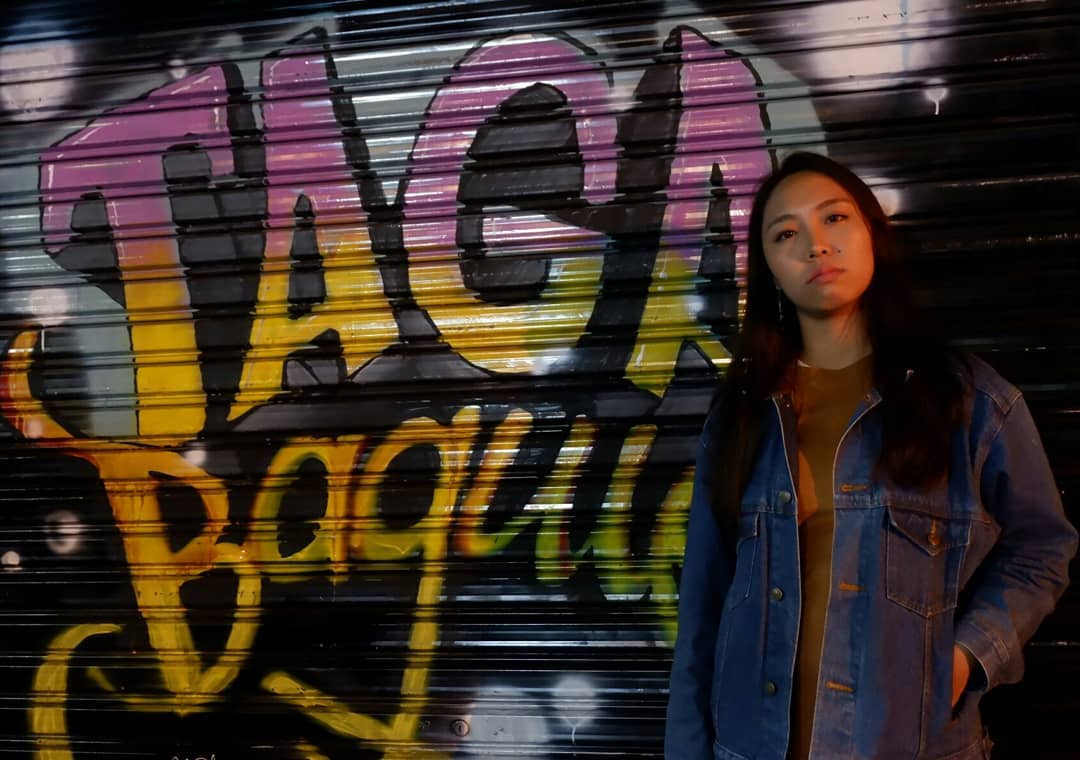 A photo taken by the end of my 4-year stay in Baguio City
A photo taken by the end of my 4-year stay in Baguio City
Image credit: Kim Shelly Tan
There are people who say I’m not Filipino because I don’t look Filipino – whatever that means – and, often, I am treated like a foreigner. People say “annyeonghaseyo” when I walk by, mistaking me as Korean, and talk about me assuming I can’t understand them.
Back when I lived in Baguio, there was a kind old man who insisted on speaking to me in English, saying it would be easier for me, though we could very well converse in Ilocano or Filipino.
There was also a time when a convenience store cashier kept on asking about my ethnicity, and if I was Korean, since there are many Koreans in Baguio. Although I didn’t see the need to tell him, I said I was Filipino just to be polite. He wasn’t satisfied with my answer, so the uncomfortable exchange went on until I finally yielded and told him I’m Ilocano. He looked at me as if being Ilocano and looking the way I do was impossible.
Though, sometimes, when I’m too shy to talk or if I do something embarrassing, I use the foreigner-looking card to my advantage. For instance, when I don’t understand what someone says because they talk too fast, I just pretend I don’t understand much Filipino.
Despite my being able to use this as an excuse from time to time, the supposed advantages of not looking “Filipino” don’t come near its disadvantages because while I usually don’t bother with strangers’ opinions of me, when I remember moments when I’m treated differently, I begin to question who I am.
The reality of being mixed-race
People think halfies get the best of both worlds, but I don’t think we do. Instead of having the option to go here or there, we often don’t have a place anywhere. Thankfully, my friends don’t treat me differently just because I look different, but instead see me as who I am and understand me through my interests.
I want other people of mixed heritage to know that the validity of our ethnicity isn’t something we need to prove to strangers. It’s certainly okay if we feel closer to one ethnicity than another. No one should get to tell us how to feel about our life experience.
Sometimes, it’s not our fault that a part of our ethnicity has become a passive part of our identity because we hadn’t have the means to learn it more. If we had the opportunity to live in both our parents’ countries, we would have a more balanced experience of their cultures. But that’s not always the case and that’s okay.
Also check out:
- 20 childhood things Filipino millennials owned before social media
- 10 timeless Filipino dramas
- 10 Filipino street foods to try
Cover image adapted from: Kim Shelly Tan
